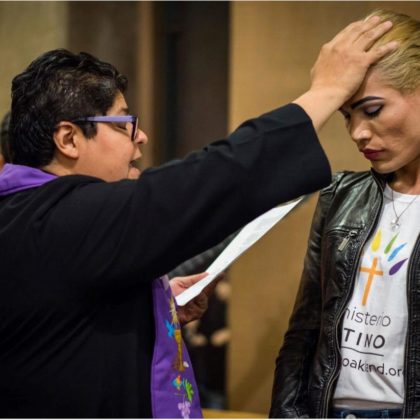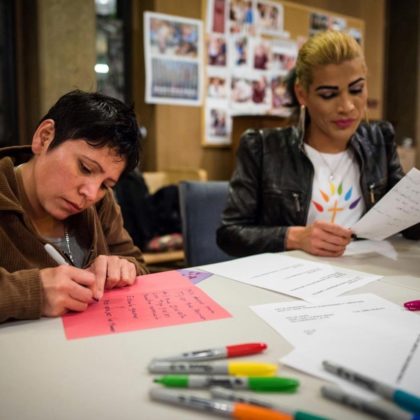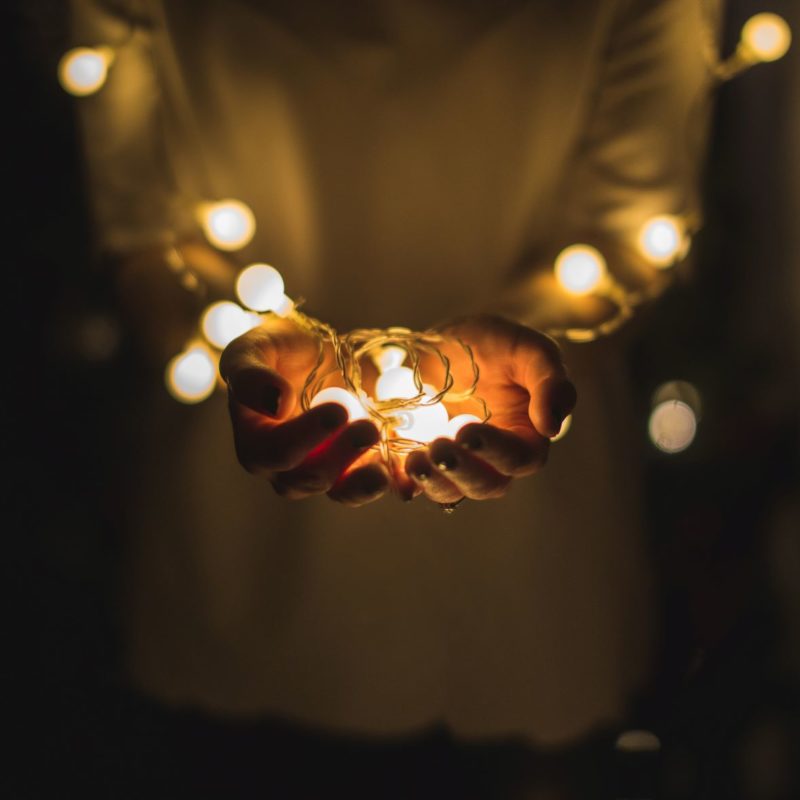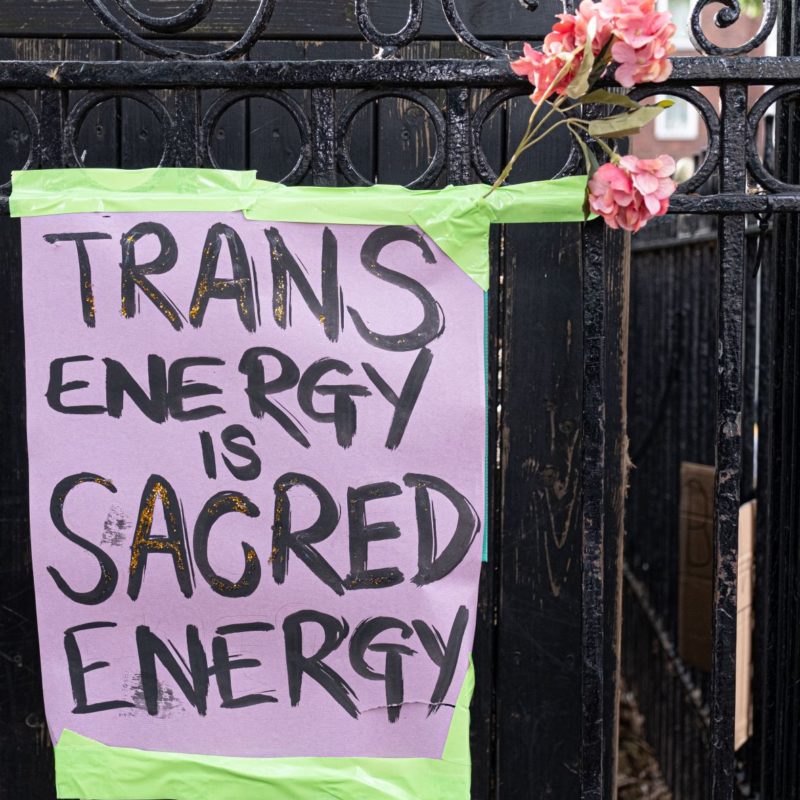I first met Charlotte at a rally in front of ICE offices in San Francisco. It was a chilly morning of January 2019, and the Interfaith Coalition for Human Integrity had organized this rally to remember immigrants who had died while detained by ICE. Charlotte testified that her friend Roxana Hernandez had died because she hadn’t received prompt medical attention while in detention. Roxana had died in her arms. Charlotte also shared how the group she was traveling with was threatened and harassed in Tijuana. They were all members of the LGBTQI community traveling together to the US. Charlotte said they had tried to go to a church for help and the trans women in the group were told to leave and not to come back until they were dressed as men. This broke my heart.
The National Center for Transgender Equality reports: An estimated 20,000-50,000 transgender adults in the US are undocumented, and thousands of transgender youth who came to the US at an early age also lack legal status. In addition, thousands of transgender American citizens have immigrant partners or other family members who have been or may be separated from them by our immigration laws. Among a population that is highly marginalized, transgender immigrants of color are among the most vulnerable to discrimination and violence. Our current immigration laws, together with pervasive discrimination against transgender people, force transgender immigrants to live in dual shadows.
Many transgender immigrants of color come to the US to escape severe and often life-threatening persecution because of who they are. Others come fleeing desperate poverty; still others arrive at a young age with family members and have grown up in the United States. Transgender immigrants work hard to support themselves and their families while making the best of the circumstances created by a broken immigration system and lingering prejudices against trans people, especially trans women of color. Yet among a transgender population that is already marginalized, the National Transgender Discrimination Survey shows that undocumented transgender people of color face even higher risks of discrimination and violence in employment, housing, health care, and when seeking various services. Trans immigrants often have nowhere to turn, find themselves shut out of jobs or education or services that could provide them with better opportunities, are denied the right to seek asylum or to be sponsored by a partner, and are thus subject to detention in inhumane and dangerous conditions (Jeanty, J. & Tobin, H.J., Our Moment for Reform: Immigration and Transgender People,
Washington, DC: National Center for Transgender Equality, 2013).
I approached Charlotte after the Rally. I told her I was the pastor of Ministerio Latino, a UCC Spanish Speaking congregation that welcomes the LGBTQI Latinx immigrant community. This was the beginning of a beautiful collaboration and friendship. Charlotte began attending Ministerio Latina and teaching us about the needs of trans women still in ICE detention. We began fundraising together to send money to the commissaries of those women in detention. Charlotte told us how important it was for them to have some funds so they could eat at least a cookie because they weren’t given proper food or enough food.
In November of that same year, we organized a Christmas Card writing drive, and we wrote messages of hope and faith during our monthly Ministerio Latino worship service and fundraised too for them. At the service, we blessed Charlotte’s hands and feet so that she continued being a messenger for her trans siblings. I believe my heart has grown bigger because I met her that cold morning in January.
– Rhina Ramos, National Coordinator for Encuentros Latinx
Questions for Reflection
- What values and practices do you draw on to open your heart to, be impacted by, and collaborate across difference?
- In what ways are you learning to follow the leadership of those most impacted by injustice in your solidarity work toward racial justice?
- How do you actively engage in intersectional understanding and advocacy in your movement toward racial justice?
Prayer
Breath in: I am love.
Breathe out: Together, we are love.
Breath in: We will not be kept silent.
Breathe out: I am a messenger of hope.
Photo Credit for Side Images: Brooke Anderson Photography: Stills Our Stories & Struggles
SHARE THIS STORY



